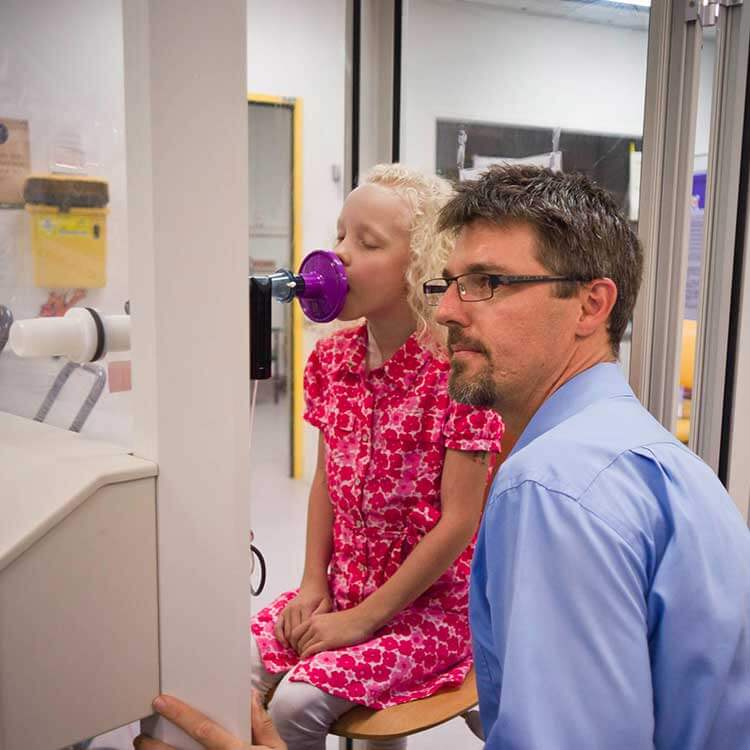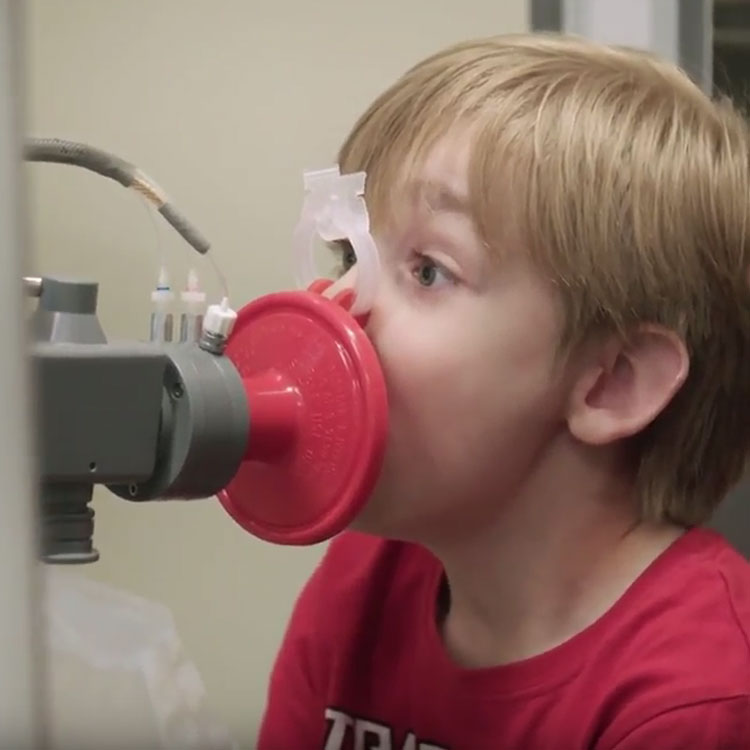Search
Research
Toll-like receptor 7 function is reduced in adolescents with asthmaAnti-viral innate immune responses may be impaired in asthma, although the mechanisms are not well understood.

Research
Stiffness Mediated-Mechanosensation of Airway Smooth Muscle Cells on Linear Stiffness Gradient HydrogelsIn obstructive airway diseases such as asthma and chronic obstructive pulmonary disease (COPD), the extracellular matrix (ECM) protein amount and composition of the airway smooth muscle (ASM) is often remodelled, likely altering tissue stiffness. The underlying mechanism of how human ASM cell (hASMC) mechanosenses the aberrant microenvironment is not well understood.
Research
LPS binding protein and activation signatures are upregulated during asthma exacerbations in childrenAsthma exacerbations in children are associated with respiratory viral infection and atopy, resulting in systemic immune activation and infiltration of immune cells into the airways. The gene networks driving the immune activation and subsequent migration of immune cells into the airways remains incompletely understood. Cellular and molecular profiling of PBMC was employed on paired samples obtained from atopic asthmatic children during acute virus-associated exacerbations and later during convalescence.
Research
Quantifying airway remodelling for research or clinical purposes: How should we normalize for airway size?Citation: Donovan GM, Wang KCW, Elliot JG, James AL, Noble PB. Quantifying airway remodelling for research or clinical purposes: How should we

News & Events
Lung problems continue into childhood for premmie babiesNew research from Perth’s The Kids Research Institute Australia shows that babies born premature continue to have lung problems well into childhood.

News & Events
Vitamin D deficiency linked to childhood asthmaResearchers at The Kids Research Institute Australia have found children with vitamin D deficiency are more likely to develop asthma.

News & Events
Video: Asthma, how serious is it?Australia has one of the highest burdens of asthma in the world. In this video, two Perth families share their story of raising children with the respiratory co
News & Events
Asthma steroid without side effectsWestern Australia has joined a major international study that could significantly change the treatment of asthma in children.
Research
Epigenome-wide analysis links SMAD3 methylation at birth to asthma in children of asthmatic mothersWe sought to assess whether the trajectory to asthma begins already at birth and whether epigenetic mechanisms, contribute to asthma inception.
